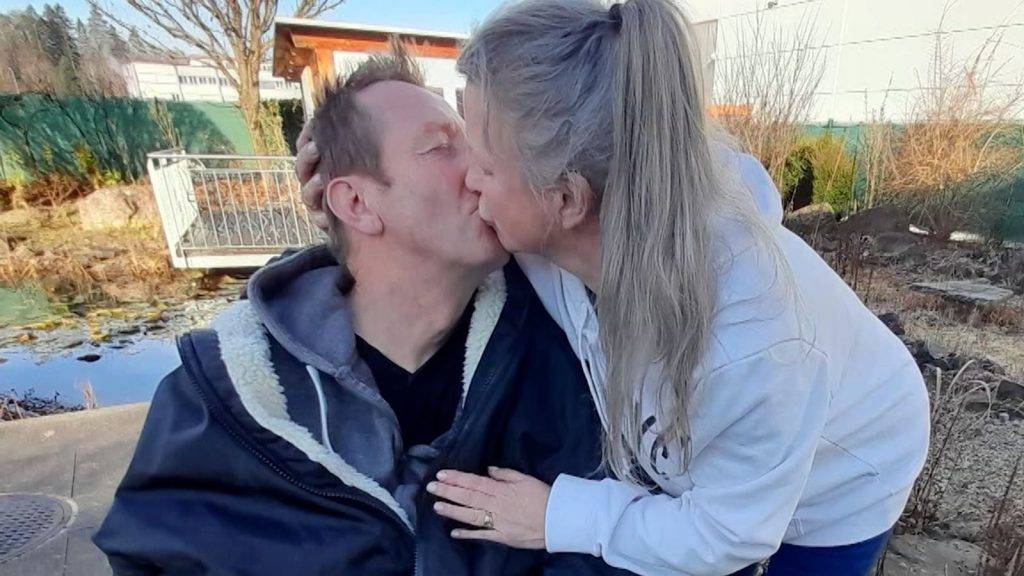Cliff Notes
-
Louise Shackleton will not face criminal charges for assisting her husband Anthony in dying at the Dignitas clinic, following a police investigation that concluded it was not in the public interest to prosecute.
-
Shackleton expressed her sadness over the prolonged investigation process and highlighted the emotional toll it takes on families navigating such decisions, urging for changes to UK laws on assisted dying.
-
She is now a vocal advocate for proposed legislation in the UK that would permit terminally ill patients to choose assisted dying, asserting that individuals should have the right to make their own choices regarding death.
Widow who helped husband ‘die with dignity’ won’t face charges | UK News
.
A woman who accompanied her husband as he took his own life at the Dignitas clinic in Switzerland has been told by police she will not face criminal charges.
Louise Shackleton had been under investigation for assisted suicide since handing herself in to police after her husband Anthony’s death in December.
The 59-year-old had been battling motor neurone disease for years and Mrs Shackleton said they had discussed at length his decision to end his life.
In April, she told Sky News she accepted she had committed a crime but had no regrets over supporting her husband.
But North Yorkshire Police has now confirmed she will face no action.
In a statement the force said: “This has clearly been a complex and sensitive investigation which has required detailed examination by the Crown Prosecution Service.
“Whilst they concluded the evidential test had been met regarding assisted suicide, it was decided not to be in the public interest to prosecute.
“Our thoughts remain with Mr Shackleton’s family.”
‘We’re treated like criminals’
Mrs Shackleton told Sky News she was not surprised by the decision but was critical of the time it had taken.
“In reality, I didn’t commit a crime,” she said.
“The reality is I enabled my husband to get to a place he wanted to be, and to do what he wanted to do.
“I knew nothing would come of it because there was no coercion.
“I could have stopped him, but why would I do that? Why would I stop his will? He died like he lived, with dignity.
“The regret I have is other people are going to have to make this journey and be left in limbo like I’ve been left in.
“People shouldn’t have to go through this.
“In the darkest days of our lives, we’re treated like criminals and that is just unfair.”
Mrs Shackleton said she was sad her husband could not choose to die surrounded by his family in his own home.
She added: “It makes me dreadfully sad, and my heart aches that at least one person a week, just from England, is having to make that journey and their loved ones, in the deepest darkest part of their lives, are going to have to go through a police investigation.”
It has been legal to help someone die in Switzerland since 1942 – provided the motive is not “selfish”.
The country’s Dignitas group has become well-known as it allows non-Swiss people to use its clinics.
Will UK legalise assisted dying?
Mrs Shackleton has become a vocal supporter of legislation going through parliament to legalise assisted dying.
It would permit a person who is terminally ill and with less than six months to live to legally end their life.
The law in the UK currently prohibits people from assisting in the suicide of others, but prosecutions are rare.
Opponents to the assisted dying bill have raised concerns about the safety of vulnerable people and the risk of coercion and a change in attitudes toward the elderly, seriously ill and disabled.
Mrs Shackleton chose to speak out publicly to honour a promise made to her husband to push for people to have choice, and believes he would be proud of her campaigning.
“People should have the right to a choice,” she said.
“I know people will say they don’t agree with that, that’s absolutely fine, I respect that, but because you don’t want something doesn’t mean you should stop someone else doing it.”
A final farewell
During the police investigation, she avoided opening her husband’s laptop in case it would have been needed as evidence. Since the investigation has been closed, she has opened that laptop and found the last letter her husband wrote to her.
“For nearly 10 months I’d been denied that letter, a letter that could have helped a lot,” she said.
“And I was denied it, and that’s wrong.”


